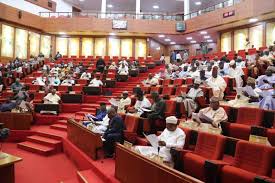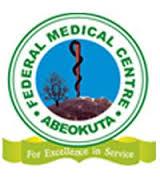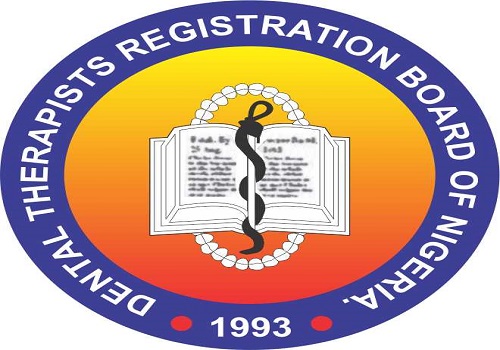Last week, consultant pediatrician Dr Efunbo Dosekun raised the alarm that up to seven hundred newborn babies die in this country every day. Dosekun, who spoke in Lagos, blamed the situation on lack of incubators in hospitals, among other causes. She said only a few health centres in the country have functional incubators. She also identified the shortage of infrastructure, inadequate number of skilled birth attendants as well as poor planning and implementation of maternal health programs by government and stakeholders as other contributory factors to the high infant mortality rate.
According to Dosekun, Nigeria’s health care system is weak with respect to the provision of emergency care. A report by UNICEF also noted that every single day, Nigeria loses about 2,300 under-five year olds and 145 women of childbearing age. This makes the country the second largest contributor to the under-five and maternal mortality rate in the world. For a long time now, the government has been or claimed to be fighting maternal and infant mortality, with some states even providing free health care services to pregnant women and children below the age of 5. We would therefore have expected that by now, the death of infants would have been reduced to the barest minimum in this country, but the statistics prove otherwise.
 Figures show that we are still far from achieving that goal. What available figures show is that stakeholders are either not sincere about the fight against infant mortality or that the approach is not right and that there is need for a review. For instance, there ought to be special hospitals properly equipped to handle children’s cases. Qualified pediatricians should also be at hand to handle their cases. Most devastating is the knowledge that essential interventions reaching women and babies on time would have averted most of the deaths. How can a nation that is serious about the fight against infant mortality lack basic facilities such as incubators? Even where there are incubators, there is no often no electricity supply to power them.
Figures show that we are still far from achieving that goal. What available figures show is that stakeholders are either not sincere about the fight against infant mortality or that the approach is not right and that there is need for a review. For instance, there ought to be special hospitals properly equipped to handle children’s cases. Qualified pediatricians should also be at hand to handle their cases. Most devastating is the knowledge that essential interventions reaching women and babies on time would have averted most of the deaths. How can a nation that is serious about the fight against infant mortality lack basic facilities such as incubators? Even where there are incubators, there is no often no electricity supply to power them. There is also the issue of trained personnel to operate the equipment. The high rate of infant mortality is only one proof of the problems in the nation’s health sector. All across the country you hear lamentations of poor healthcare services. Where there are drugs, there will be inadequate doctors and where there are doctors, there are no drugs. In some instances people have to travel for long distances to access medical care. Most pathetic is the case of rural areas where some health care centres have no medical personnel or are manned by only nurses. In the event of an emergency, the patient will have to travel to a nearby village or wait for a doctor who may not arrive until damage has been done.
Most hospitals do not have ambulances for emergency situations while in some general hospitals, beds are lacking. There have been many seminars and workshops on ‘‘working to ensure a healthy nation’’ but the situation in our health care centres shows that stakeholders are not matching words with action. No serious nation should toy with the health of its populace. The government came up with the National Health Insurance Scheme, which was a laudable project, but how effective is the service rendered? Are the providers monitored to ensure that they carry out their mandate appropriately? And most importantly, only a fraction of the population is captured by the scheme. Many people in rural areas are not captured in the scheme and they are the ones that need it more.
Retirees, some of whom have not even been paid their benefits often lament over their inability to access health care. If the government is serious about guaranteeing a healthy nation, efforts must be made to ensure that the poor and vulnerable have access to medical care. The health insurance scheme should be reviewed to cover all illnesses, as the current situation where some illnesses are not covered defeats the purpose for which it was instituted. Efforts should be made to ensure that all health care centers have adequately trained personnel who should be properly remunerated.
Last year, health workers’ unions went on strike for several months, during which period many people lost their lives as they did not have the wherewithal to patronise private hospitals. Stakeholders must work hard to ensure that such situations are discouraged. Furnishing health care centres with equipment, consumables and personnel should be a priority of government at all levels.
Source: Daily Trust News
ABUJA: Training Schedule for Basic Life Support BLS, Pediatric Advanced Life Support (PALS), Advanced Cardiovascular Life Support ACLS, First Aid, CPR, AED
PORTHARCOURT: Training Schedule for Basic Life Support BLS, Pediatric Advanced Life Support (PALS), Advanced Cardiovascular Life Support ACLS, First Aid, CPR, AED
LAGOS: Training Schedule for Basic Life Support BLS, Pediatric Advanced Life Support (PALS), Advanced Cardiovascular Life Support ACLS, First Aid, CPR, AED





